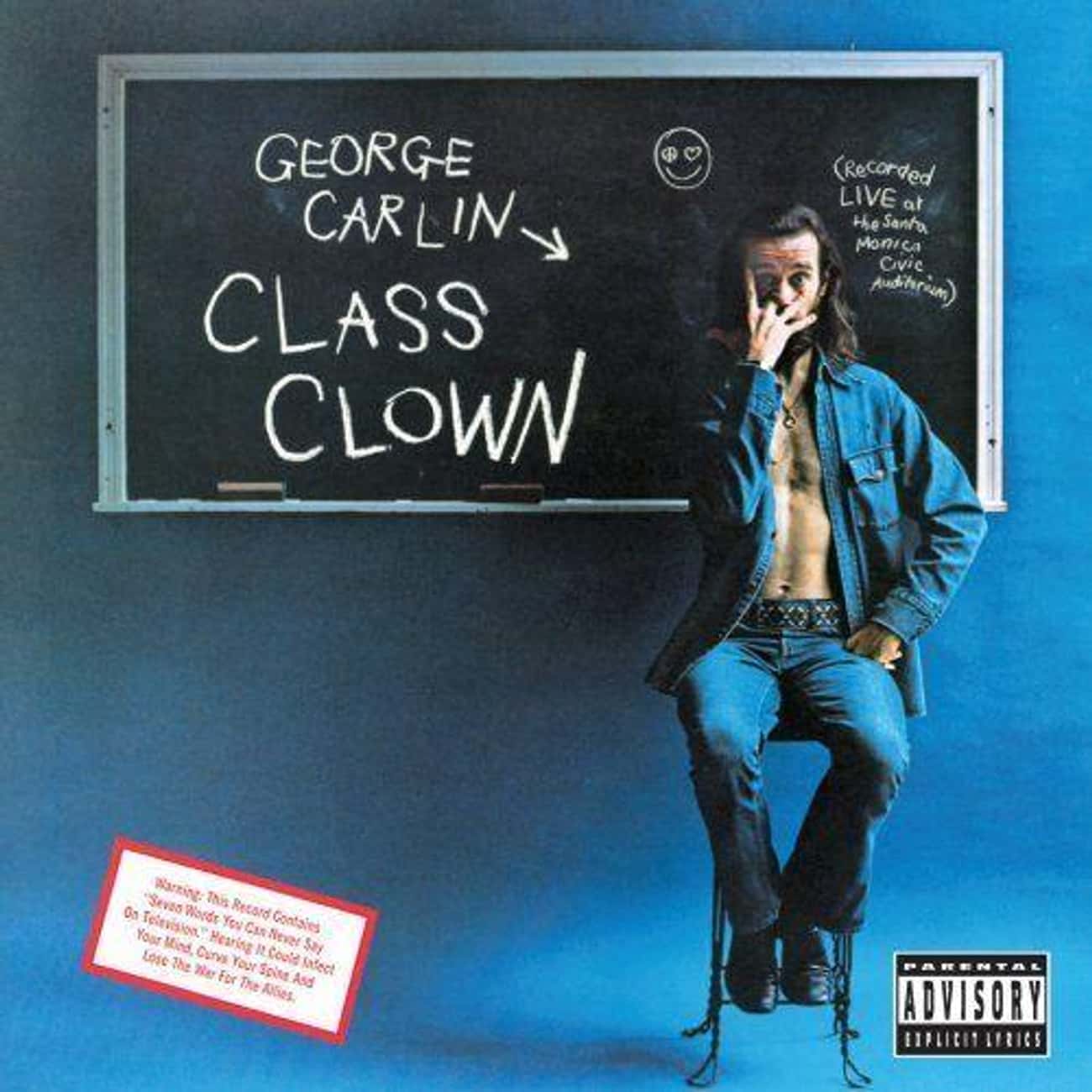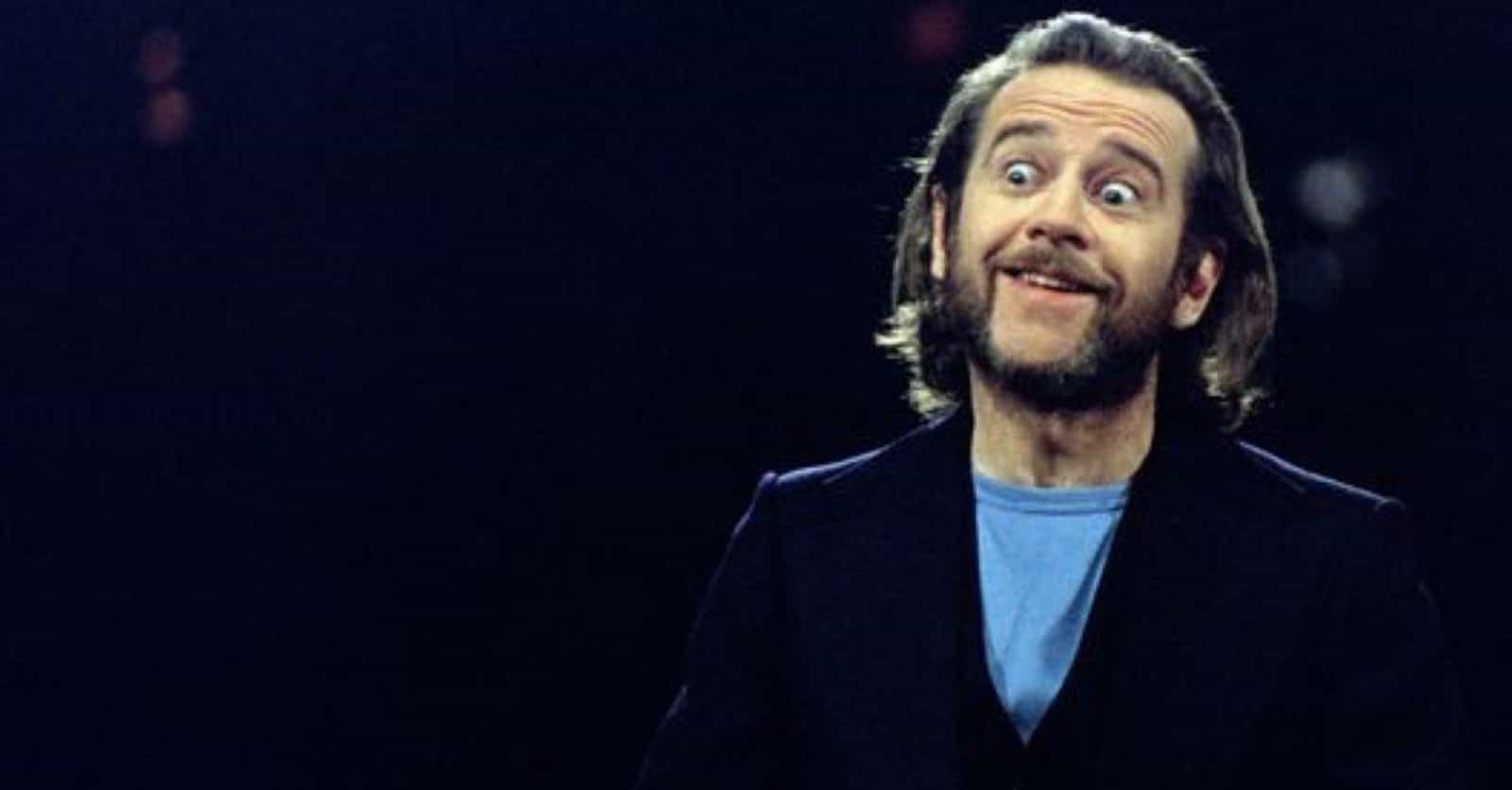Brilliant, edgy, ahead-of-his-time, ingenious, and downright hilarious are just some of the plethora of adjectives to describe the legendary stand-up comedian George Carlin. With a career spanning over 50 years, Carlin graduated from class clown in high school to early days performing on The Ed Sullivan Show to eventually becoming so successful in stand-up that he is still universally regarded as one of the funniest comedians of all time.
Although it has been over fifteen years since we lost the beloved comedian, Carlin’s memory lives on through his timeless quotes, moving monologues that still cause debate today, and even regarding censorship laws in the country — thanks to his arguable most popular act, “Seven Words You Can Never Say On TV.” Regarding Carlin’s complex career and life, there are still many interesting pockets of trivia and facts that even die-hard fans may not know, and here are the top 10 below.
1. A High School Gift From His Mother Is Actually What Jumpstarted His Stand-Up Career

Photo: HBO
Growing up, Carlin was known for his antics as a class clown, including making faces and silly noises. He began performing routines for his friends when he was a teenager. His behavior also got him into trouble, including getting kicked out of summer camp for taking camera film.
During his freshman year of high school, his mother bought him a tape recorder. He used his new device to record his own shows, creating newscasts and short dramas he put together about people in the neighborhood. This was a time when the tape recorder was huge and clunky, but it inspired Carlin to parlay his love of language and words into a job in radio broadcasting – and eventually, stand-up.
2. He Was Expelled From A High School Where Regis Philbin And Martin Scorsese Were His Classmates

Photo: HBO
When he was in seventh grade, Carlin was caught taking money during a basketball game from the opposing team’s locker room. He was then sent to another school, where he got into trouble for joking with some classmates that he had some smack. Carlin was then sent to his old school in the Bronx, Cardinal Hayes. The school has its share of distinguished alumni – among them Martin Scorsese, Regis Philbin, and author Don DeLillo – but Carlin is probably the most famous of its students to be expelled.
After skipping school and failing his classes, he was asked to leave. Carlin soon dropped out for good. His lack of formal education inspired him though. “The fact that I didn’t finish school left me with a lifelong need to prove that I’m smart, prove it to myself, maybe to the world,” Carlin said.
3. Richard Nixon Winning The 1972 Re-Election Made Carlin Never Vote Again

Photo: HBO
Through much of his career, Carlin included a lot of political commentary in his comedy – commenting on, among other things, the separation of church and state and America’s efforts to fight extremism. But at a certain point, he decided he didn’t actually want to be a part of the political process. Carlin placed his last vote in the 1972 election; the fact that Richard Nixon was re-elected convinced him to never vote again.
He wasn’t against politics but rather felt the entire government system needed massive changes and he believed not voting was the only way to make the voice of the public be heard. He argued:
If you vote, and you elect dishonest, incompetent politicians, and they get into office and screw everything up, you are responsible for what they have done. You voted them in. You caused the problem. You have no right to complain.
4. He Actually Aimed To Be A Wholesome Suit-And-Tie Act When He First Started Stand-Up

Photo: Wikimedia Commons/ Public Domain
Throughout the 1960s, Carlin was a pretty straight-laced comedian – dressing nicely and appearing on clean network programs like The Ed Sullivan Show – and desired to be like the wholesome Danny Kaye. As his career progressed, Carlin found his voice and discovered the clean-cut material he was performing wasn’t really him. He grew a beard, started mentioning using LSD and peyote in his act, and occasionally ditched the comedy clubs for coffee houses.
When cable television emerged, he found an outlet for speaking his mind without fear of censorship over his material. Carlin’s embrace of counterculture and addressing society’s flaws through comedy caught on, earning him a legion of fans that stuck around to the end. He once said, “I think it’s the duty of the comedian to find out where the line is drawn and cross it deliberately.”
5. Carlin Was Raised By His Mom And Brother, After Fleeing An Abusive Father

Photo: HBO
When Carlin was only 2 months old, his mother took him and his brother and fled their alcoholic, abusive father. Carlin’s mother found a job and worked hard to raise her two boys by herself through the 1940s.
Although Carlin viewed his mother as a strong woman, her working so many hours meant he spent a lot of time on his own. He believed this gave him a strong need for attention, as well as a taste of the freedom and independence he made use of throughout his stand-up career. His mother wanted him to go into business, but also supported his interest in comedy and became one of his first audiences. His mother’s response to his wit taught him how humor worked and what made people laugh.
6. He Experienced His Second Heart Attack While At Dodger’s Stadium Watching A Baseball Game

Photo: HBO
“As it stands right now,” Carlin noted in 1982, “I lead Richard Pryor in heart attacks, two to one. However, Richard still leads me, one to nothing, in burning yourself up.”
Carlin’s second heart attack occurred while watching a baseball game at Dodger Stadium. Although he shrugged the seriousness of the moment off, Carlin immediately went to the hospital. It turned out his right descending artery was almost completely blocked and doctors weren’t sure he’d survive. They decided to try an anticoagulant drug they had just received earlier in the week; luckily for Carlin, it worked and saved his life.
The famed comedian’s heart problems may have come from his struggle with addiction throughout his life, including a stint in rehab for “wine and Vicodin” at age 67. In 2008, he passed from heart failure at the age of 71.
7. His Famous “Seven Words” Monologue Caused The Supreme Court To Made Judicial Changes Around Censorship

Photo: Kevin Armstrong/ CC BY-SA 3.0
Carlin’s “Seven Words” monologue was broadcast on the radio in 1973, leading one man to complain to the FCC after his teenage son heard it. The commission started an investigation to determine if the broadcast had gone against any profanity or obscenity laws. When questioned, the radio station claimed Carlin’s routine had been included during a discussion about language and listeners were given a warning before it was played. It also defended Carlin’s right to use certain words in order to make fun of them, however offensive they were to some people.
When the FCC ruled that obscene words should only be played on the radio during hours when children were most likely not listening, the Circuit Court claimed this was censorship and overturned the ruling. The case eventually went before the Supreme Court, which sided with the FCC. Although this was considered a blow against First Amendment rights and gave the FCC more control over censorship, Carlin was glad to be a part of it: “I’m actually a footnote to the judicial history of America.”
8. He Eventually Got Kicked Out Of The Air Force, After First Being Court-Martialed Three Different Times

Photo: HBO
Carlin joined the Air Force in 1954 after dropping out of high school and planned to use the GI Bill to pay tuition for broadcasting school. Carlin was stationed in Louisiana at Barksdale Air Force Base, but his lack of respect for authority and rules kept him from fitting into the military – and it resulted in three courts-martial. The first was an accusation of abandoning his post after he fell asleep inside a grounded plane nowhere near his sidearm. The second came after using some choice words.
Eventually, the Air Force gave him a general discharge, which is preferable to a dishonorable discharge. Carlin was comfortable with the decision, having already been asked to leave the Boy Scouts, an altar boy program, a boys’ choir, and summer camp. He said, “I never fit and I didn’t like conforming. And sometimes it just broke through the membrane, and I was out.”
9. He Actually Didn’t Remember The First Time He Hosted SNL

Photo: NBC
By 1975, Carlin’s image as a counterculture icon was firmly established. He was given the honor of acting as host for a brand-new sketch comedy TV show called Saturday Night (“Live” was added later). He got the gig partly because of his comedic skills and partly because he went to summer camp with the director.
Unlike modern SNL guest hosts, Carlin didn’t appear in any sketches but instead performed short stand-up routines sprinkled through the show. Although famous for his anti-authority approach to life, Carlin did bow to the studio’s dress-code demands. Executives originally insisted he wear formal attire but were apparently okay with his choice of a suit/T-shirt combo.
Later on, Carlin claimed he didn’t remember most of this historic night, mostly because he was “loaded on [coke] all week long.”
10. His “Seven Words” Act Also Got Him Detained For Public Indecency

Photo: Eardrum Records
In 1972, Carlin appeared at Summerfest, an outdoor concert festival in Milwaukee. Earlier that year, Carlin released his album Class Clown, which contained his now-famous “Seven Words You Can Never Say On Television” act. Police officers were standing by at the Milwaukee show in case he decided to do the bit live. Carlin wasn’t aware they were waiting backstage but wasn’t one to back down when it came to matters of the First Amendment.
During the show, his wife walked on stage to give him some water and warned him of the cops’ intentions. Instead of exiting on the left where they were waiting, Carlin headed right, handing off the coke he had stashed in his pockets to members of the band. The police nabbed him, and though it was only a verbal offense, six officers escorted him off the festival grounds.

